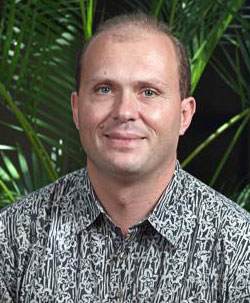
People who suffer from an addiction to opioids and want to overcome their addiction should not be denied access to treatment by their insurance providers, according to new policy recommendations that were co-authored by Claudio Nigg, a professor in the Office of Public Health Studies at the University of Hawaiʻi at Mānoa.
The most common reason why people who want but do not get addiction treatment is that government and private insurance programs don’t cover the costs, according to a statement published June 27 on the website of the Society of Behavioral Medicine.
“To fight the opioid addiction epidemic that is ravaging the U.S. today, policymakers need to increase Medicaid funding for addiction treatment and declare the opioid epidemic to be a national emergency, and not just a public health emergency,” Nigg says, explaining that this would provide more federal money for treatment programs.
On average every day, 78 people die in the U.S. from opioid-related overdose, and 3,900 people start taking a prescription opioid for a non-medical reason.
In Hawaiʻi, 77 people died from opioid-related overdose in 2016, the most recent year that statistics are available from the National Institute on Drug Abuse.
Medication and behavioral therapy are critical
Studies have shown that an effective, evidence-based method of treatment for addiction is “medication-assisted treatment.” These programs include two components: medications that decrease cravings, and behavioral therapy, such as counseling or talk therapy, which is what ultimately helps people to change their behaviors.
“Many insurance programs cover the cost of the medication, but not the counseling,” Nigg says.
People who enter programs that don’t provide behavioral therapy have poorer outcomes and higher relapse rates, research shows.
“People need the counseling, not just the pills, to overcome their addiction,” he says.
Nigg is an expert on behavioral health science. Over his career, he has studied theories of behavior change, and has conducted research on what motivates people to engage in healthier behaviors.
The new policy statement was jointly issued on June 27 by the Society of Behavioral Medicine and the Society for Health Psychology. Nigg’s co-authors include Jayson J. Spas of Rhode Island College, Joanna Buscemi of DePaul University, Ravi Prasad of Stanford University and Amy Janke of the University of the Sciences.
—By Theresa Kreif

